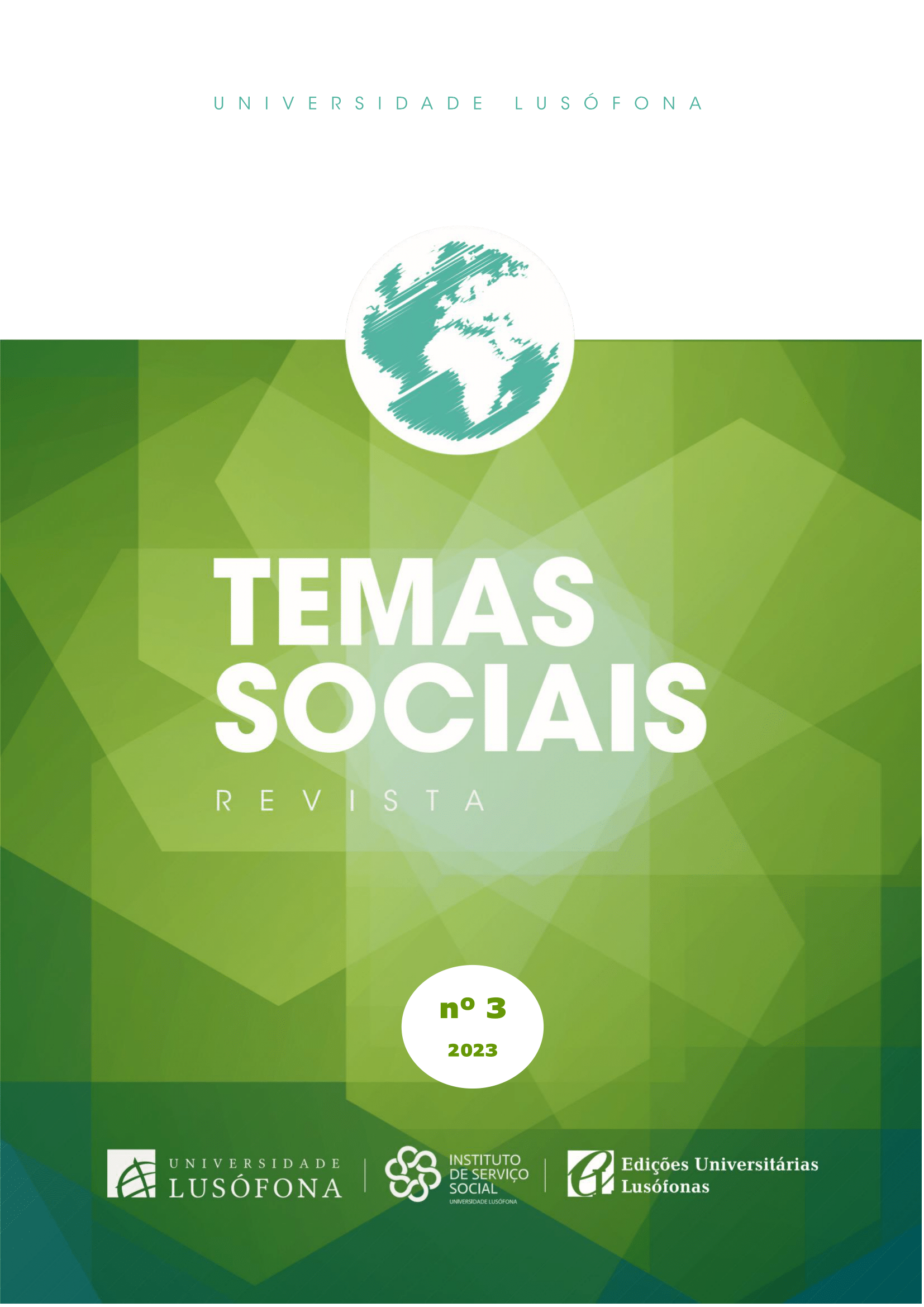Serviço Social e Direitos Humanos - A formação dos Assistentes Sociais na defesa e realização dos Direitos Humanos na intervenção social
https://doi.org/10.53809/TS_ISS_2022_n.3_7-30
Abstract
A Agenda Global para o Serviço Social organizou um Congresso Mundial em Junho 2022, com o tema “Co-Buildin a New Eco-Social World. Leaving no one Behind!”. A finalidade e propósito desta cimeira pretendem criar uma Declaração Global de Valores “Global Values Declaration”. Perante este desafio, este texto tem como finalidade apresentar os pilares de uma proposta formativa para os Assistentes Sociais, em Portugal, como profissionais de Direitos Humanos.
Colocamos aqui um conjunto de considerações e propostas sobre a formação dos Assistentes Sociais como profissionais de Direitos Humanos, estando este texto estruturado em três partes: i. os princípios éticos orientadores, ii. alguns referenciais teóricos que situam as necessidades humanas no quadro de uma abordagem ecológica, iii. as estratégias metodológicas e os desafios políticos e pedagógicos no quadro da investigação-ação, terminando com considerações sobre o Serviço Social e os próximos passos na defesa dos valores de referência do Serviço Social.
Downloads
Open Access Policy:
The Journal facilitates free, open and immediate access to its contents to foster the exchange of knowledge at a global level.
By submitting their work, the author(s) authorise the publication and dissemination of their work and are responsible for its content.
Code of Ethics:
The Journal is a digital tool that enables the dissemination of knowledge in a globalised society where technology, communication and information occupy a prominent place. The publication promotes equal opportunities facilitated by knowledge. To this end, the Journal is committed to the content it publishes, adopting a code of ethics based on the following principles:
1. The texts received must be original, by the author(s) alone and unpublished, i.e. they must not have been previously published, broadcast or sent to another publication.
2. Authors are responsible for requesting any authorisations necessary to publish their texts, with the respective reference to the sources consulted.
3. That organisation must authorise work funded by an organisation to disseminate the results.
4. the plagiarism detection tool in force will review all work received at Universidade Lusófona - Centro Universitário de Lisboa.
5. The articles received will be evaluated by two experts in the field, guaranteeing the anonymity of the author(s) and the evaluators.
6. Papers involving people as the research subject must obtain informed consent from all of them, with strict respect for the confidentiality of personal data and, if necessary, the decision of the Ethics Committee.
7. The list of authors should only include those who contributed intellectually to the work, i.e., who designed and carried out the research, wrote up and analysed the results and approved the final version of the text.



